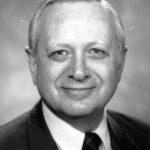On June 28 all seven justices of the appellate court reversed Judge Thomas Penfield Jackson’s order to break up Microsoft into two separate companies.
However, Microsoft is not out of the woods. There remains a serious legal issue about the supposed monopoly of the Windows operating system. The seven justices accepted Judge Jackson’s conclusion that the potential exists for an exercise of monopoly power on the part of Microsoft.
This is a serious error in logic. First, the definition of the market excludes the Linux system, the Palm OS, and most importantly the Apple operating system, which incidentally I am now using to write this.
Second, and more importantly, there is no evidence that Microsoft has or will act like a monopolist. What monopolists do is restrict output in order to raise price above marginal cost. This gives the monopolist profits over and above the ordinary competitive level. This crucial point about restricting output is recognized by the seven district judges. But they go on to say that since “direct proof [of restricting output] is only rarely available, courts typically examine market structure in search of circumstantial evidence of monopoly power.”
While output measurement might be difficult for other cases, it is quite easy in the Microsoft case. The numbers of personal computers and their operating systems are readily available. Moreover, deliveries have been increasing at a very rapid rate for decades, due largely to the intense marketing effort of Microsoft. Would Microsoft throw away the return on its investment by restricting output in the future and thereby opening the market to its competitors? I think not. Microsoft can be accused of a lot of things, but being dumb about making money is not one of them.
One can hope that the subsequent legal proceedings will return economic sanity to the high-tech marketplace. The decision by the seven appellate court judges is a good first step. But much more remains to be done.
Jim Johnston is a policy advisor to and Board member of The Heartland Institute, a nonprofit research organization based in Chicago. He can be reached at [email protected].




